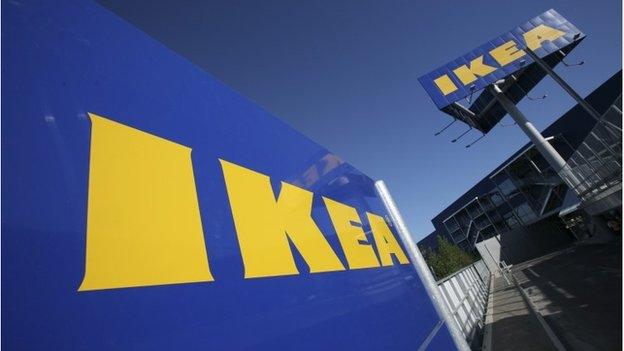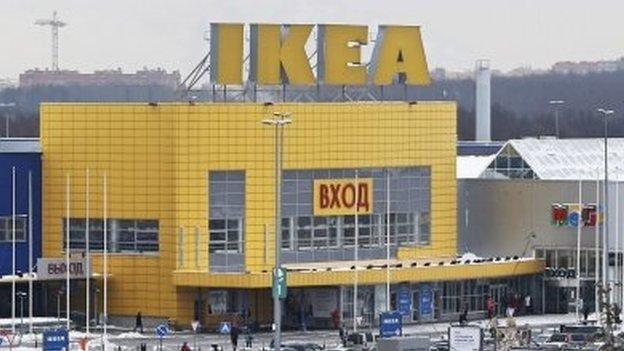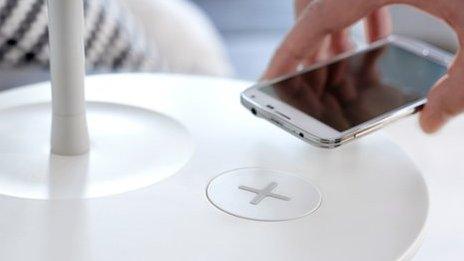Ikea to spend €1bn to tackle climate change
- Published

Ikea says it wants to reduce carbon dioxide emissions from all aspects of its operations
Furniture giant Ikea says it will spend €1bn (£735m) over the next five years to tackle climate change.
This is far more than many countries are doing, and Ikea says if other firms follow suit, they can force down the price of energy from renewables.
Over the next five years, the company says it will spend €500m on wind power and €100m on solar.
Its charitable arm will spend a further €400m helping poor countries likely to be worst hit by climate change.
The announcement comes as governments meeting at a UN conference are discussing targets on climate change way lower than scientists say is necessary to ensure a stable climate.
Ikea believes businesses must take a lead while politicians delay. Peter Agnefjall, its chief executive, said: “Climate change is one of the world’s biggest challenges and we need bold commitments and action to find a solution.
“That’s why we are going all in to transform our business, to ensure that it is fit for the future and we can have a positive impact.”
The firm plans for all its buildings be powered by renewables. All the lighting it sells will run on LEDs: the company says it will force down the price of the bulbs.
The group has invested €1.5bn in wind and solar since 2009, committing to own and operate 314 offsite wind turbines and installing 700,000 solar panels on its buildings.
The announcement is the latest in a series of unpredicted moves on climate change. The European oil and gas majors, including Shell and BP, have called on governments to introduce a carbon price to force coal – the dirtiest fuel - out of the energy mix.
The Saudi oil minister has said he expects his country to switch from oil to solar in decades to come. Apple are thought to be developing an electric car. The chief executive of Unilever has called for much more ambitious targets from governments to drive investment in clean technology.
And this week, leading economists and scientists called for a $150bn Global Apollo Programme to make renewable energy cheaper than coal.
Some analysts believe actions such as these suggest that the long battle over climate change has reached a turning point.
There is still huge resistance to change from coal-dependent nations and firms. One of them, Koch Industries in the US, is supporting its views with an investment of nearly £1bn in political campaigning in the US elections.
But a divide is emerging between powerful businesses taking very clear sides on the debate over climate and energy.
Follow Roger @rharrabin
- Published13 March 2015

- Published2 March 2015
